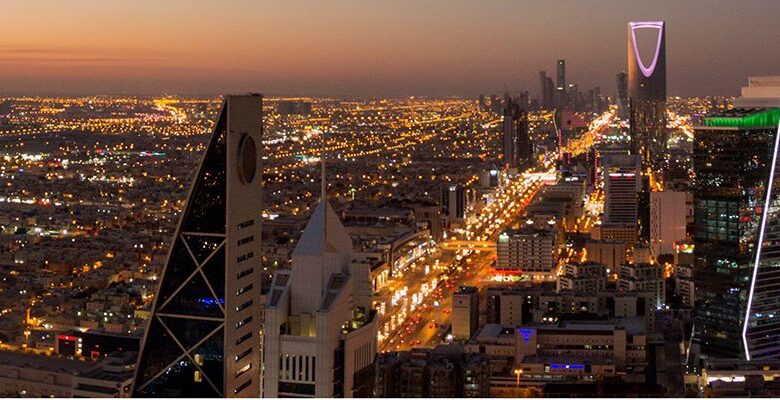Saudi Arabia calls for humanitarian AI after tightening screws on rights protesters

Saudi Arabia (KSA) has called for a global agreement to govern artificial intelligence (AI) with humanitarian and democratic values, earning the incredulity of rights activists campaigning to free people imprisoned for decades for criticising the Gulf state on social media.
Using the diplomatic honour the United Nations (UN) bestowed on it by allowing it to host the annual UN Internet Governance Forum (IGF) in Riyadh, its capital, in December 2024, the oppressive state opened the vast meeting by calling for a global agreement to make AI accountable, transparent and fair, and ensure it was used to increase the well-being of all people.
States should make AI trustworthy as well, it said, by creating a global digital identity system, putting it at the core of AI, and taking steps to make sure everyone in the world used it.
Groups campaigning for digital, political and civil liberties said it was hypocrisy for KSA to host IGF 2024, a primary theme of which was human rights, while it continued to prosecute people, imprison them for decades, and “forcibly disappear and intimidate them into silence for expressing themselves on social media”.
While making IGF host preparations in September last year, Saudi Arabia commuted to 30 years imprisonment a death sentence it placed on Saudi citizen Nasser al-Ghamdi under a terrorism law for writing X posts criticising the regime, according to Amnesty International.
Saudi Arabia is among the 20 most oppressive countries in the world, alongside Myanmar, Belarus and Somalia – and worse even than Iran, Russia and China – according to data compiled by campaign group Freedom House. Its repressions of internet users make it the eighth-worst country for “internet freedom” among 72 nations whose digital rights the organisation studied.
Freedom House accused it and other autocratic regimes of wrangling the chair of international fora to “normalise” their extreme surveillance, censorship and prosecution of dissent. They used such positions to design international treaties that would bring “global … internet governance closer to their own authoritarian worldviews”. KSA was using IGF to do this, and to “sanitise its track record”, by hosting IGF, the campaigner group said in a statement on the forum’s eve.
Riyadh AI Declaration
KSA opened IGF with a diplomatic showpiece it dubbed the Riyadh AI Declaration, in which it said it wanted to build “a world in which technology is equitable and accessible to all”, in which people were “empowered”, nobody was excluded, and discrimination, bullying and abuse were banished online.
It called for a global agreement to stop AI being used to spread misinformation and disinformation, “especially on social media”, where it was already rife. A global digital ID system would meanwhile make sure AI worked “in the public interest”. It wanted a global consensus on ethics that protected people from “unauthorised surveillance” powered by AI, and guarded their privacy.
KSA’s calls for equitable access to AI included a demand that the highly contested, valuable and scarce resources that power AI – its data, compute resources and algorithms – were distributed equally among all nations, echoing statements calling for a global redistribution of wealth between rich and poor nations by the autocrat-led Brics group of nations, with which it has been flirting.
The humanitarian aspect of the Gulf state’s stance conflicted with accounts of campaigners, who said many were afraid to attend the conference for fear of being detained and prosecuted.
“Saudi Arabia uses technology to maintain power, not to benefit humanity,” said Duaa Dhainy, a researcher at the European Saudi Organization for Human Rights, who was aghast at the Saudi Declaration.
“We fear [KSA] will use AI to pursue human rights defenders,” she said. “They have been using many [software] programs to spy on activists. We are afraid of using technology. So, how can they call for this agreement?
“It is a country where there is no transparency at all, where you can be punished just for asking for information to be published,” said Dhainy. “In Saudi Arabia, transparency is from the government’s perspective. When we ask for numbers of people on death row, we get no response. Human rights defenders can be arrested when they ask for information, so how can [KSA] ask for transparency?”
Calls for political freedom
Many rights campaigners did attend the conference and held meetings addressing repression in the Middle East and Africa, using their platform to cite state abuse and call for political freedom. Some said it was the first time they had been in KSA for a decade. But protests emerged during the event of sessions being hacked as they were streamed to audiences online, and of Saudi authorities censoring campaigners.
Dana Ahmed, a researcher at Amnesty, said flyers publicising the plight of Manahel al-Otaibi, who KSA jailed in January for 11 years under terrorist charges for tweeting on women’s rights and posting photos of herself not wearing traditional Arabic dress, were confiscated from its IGF exhibition booth. Likewise, leaflets publicising the similar treatment of Neth Nahara, a mother who Angola jailed for criticising its president on TikTok.
Campaigners used the event to publicise others they said were victims of Saudi digital oppression, including Osama Khalid, jailed for 32 years in 2020 for “violating public morals” by writing on Wikipedia; Salma al-Shehab, jailed for 34 years in 2021 for social media posts on women’s rights; and Abdulrahman al-Sadhan, who they said KSA disappeared in 2018 after detaining and sentencing him to 20 years for posting satirical tweets.
“They took over the Zoom session and started streaming adult content,” said Adeboye Adegokem, in a message relayed to Computer Weekly by African rights group Paradigm Initiative, who he represented on the panel.
“It happened two times. We had to end the session abruptly as it seems [the] tech team couldn’t keep them out. [It was] concerning because it happened after someone mentioned the journalist’s case,” he wrote, apparently in reference to Washington Post journalist Jamal Khashoggi, who Saudi agents murdered brutally in 2018.
Lina al-Hathloul, head of advocacy at Saudi rights group ALQST, said the conference platform gave her the opportunity to speak in KSA for the first time since 2018, when her sister Loujain was arrested, tortured, imprisoned for three years, and put under a travel ban that has been extended to her whole family, because she campaigned for women to have a right to travel. But she spoke via video link for fear she would be arrested if she went in person, she said.
“So many things happened to others that I cannot speak about yet because they are still inside and it’s not good for their safety,” said Al-Hathloul.
The UN Secretariat told Computer Weekly it removed the video because it believed it violated a rule in the IFG code of conduct that forbade “personal or ad hominem attacks”. “The IGF manages its records according to technical needs and internal mechanisms, not on the advice of a particular host government,” a spokeswoman for the UN Secretariat told Computer Weekly by email.
She confirmed Adegokemn’s account of the IGF session that was hacked with pornography, but said the interruption caused by this “Zoom bombing” was “momentary” and “promptly neutralised”. Preventing this was impossible because IGF meetings were left open to online participation. One other session suffered a minor interruption.
Saudi Arabia had not tried to get other countries at the UN to back its AI Declaration, she said. The UN Secretary General had no intention of backing it either.
The UN had been justified in hosting IGF 2024 in Saudi Arabia, it said, because it demonstrated its belief that to wrest a global consensus on digital governance based on human rights, as it aimed to do, required constructive dialogue “with all countries” as equal stakeholders, said a UN spokesman, also by email.
Saudi authorities were not prepared to comment.



